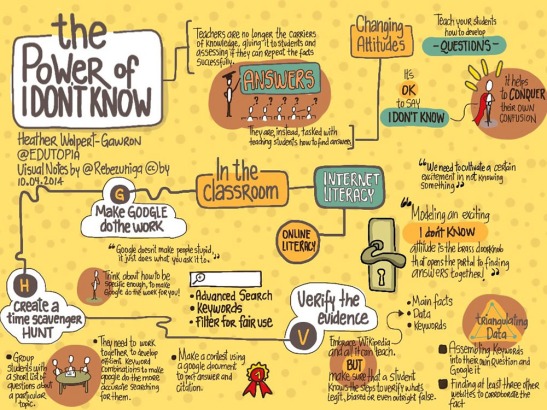The Power of “I Don’t Know”

A major shortcoming of the vision of the teacher as subject expert in a system of knowledge transmission is the expectation that the teacher will always know the answer because, after all, they are the ‘expert’.
This is a particularly dangerous trap to fall into at the beginning of a teaching career, where an inexperienced teacher, presented with a question to which they don’t know the answer is required to dissemble or bluster to avoid exposing a hole in their knowledge.
There is a simple strategy to prevent this situation arising… it involves admitting that you don’t always know the answer but that you have strategies for dealing with this. For example, you may use the knowledge you already have to extrapolate an answer, however approximate. This works well as long as you are clear in your explanation to the student that you have moved from secure knowledge to speculation.
Far more powerful is to admit you don’t know and work together on a strategy to find out an answer. I suppose this is the analogy of the fish or the fishing rod again!
Terry Heick of Teachthought presents this very useful infographic, originally by Heather Walpert Gawron of Edutopia, to illustrate a comprehensive version of this discovery approach…
Source: The Power Of I Don’t Know

Pingback: Teaching Pod